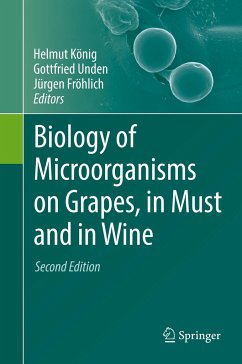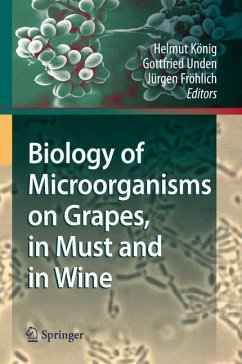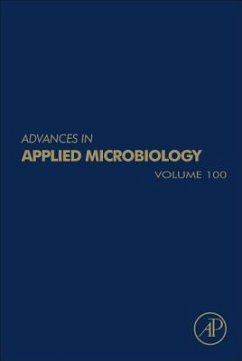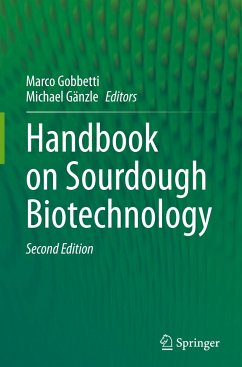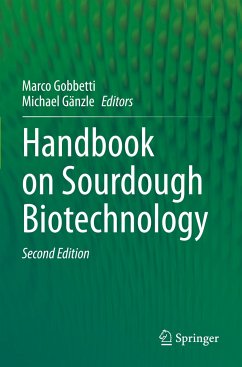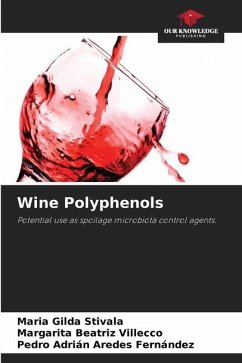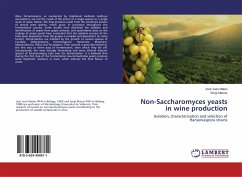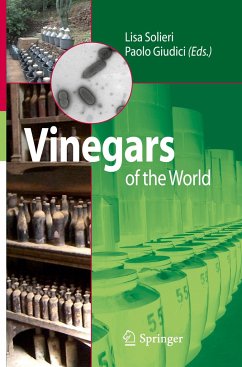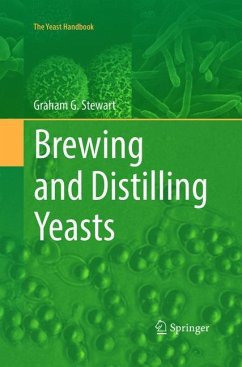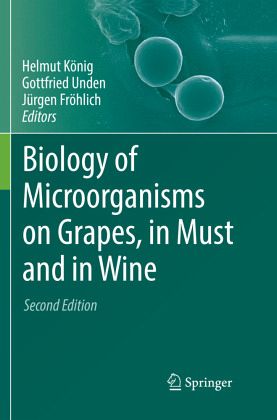
Biology of Microorganisms on Grapes, in Must and in Wine
Versandkostenfrei!
Versandfertig in 6-10 Tagen
213,99 €
inkl. MwSt.

PAYBACK Punkte
107 °P sammeln!
The second edition of the book begins with the description of the diversity of wine-related microorganisms, followed by an outline of their primary and energy metabolism. Subsequently, important aspects of the secondary metabolism are dealt with, since these activities have an impact on wine quality and off-flavour formation. Then chapters about stimulating and inhibitory growth factors follow. This knowledge is helpful for the growth management of different microbial species. The next chapters focus on the application of the consolidated findings of molecular biology and regulation the functi...
The second edition of the book begins with the description of the diversity of wine-related microorganisms, followed by an outline of their primary and energy metabolism. Subsequently, important aspects of the secondary metabolism are dealt with, since these activities have an impact on wine quality and off-flavour formation. Then chapters about stimulating and inhibitory growth factors follow. This knowledge is helpful for the growth management of different microbial species. The next chapters focus on the application of the consolidated findings of molecular biology and regulation the functioning of regulatory cellular networks, leading to a better understanding of the phenotypic behaviour of the microbes in general and especially of the starter cultures as well as of stimulatory and inhibitory cell-cell interactions during wine making. In the last part of the book, a compilation of modern methods complete the understanding of microbial processes during the conversion of must towine.This broad range of topics about the biology of the microbes involved in the vinification process could be provided in one book only because of the input of many experts from different wine-growing countries.



